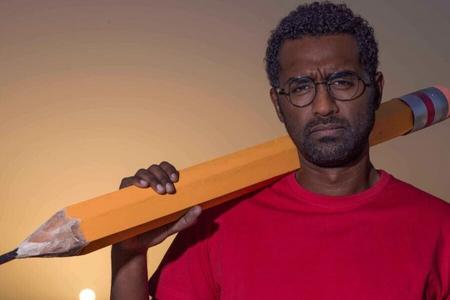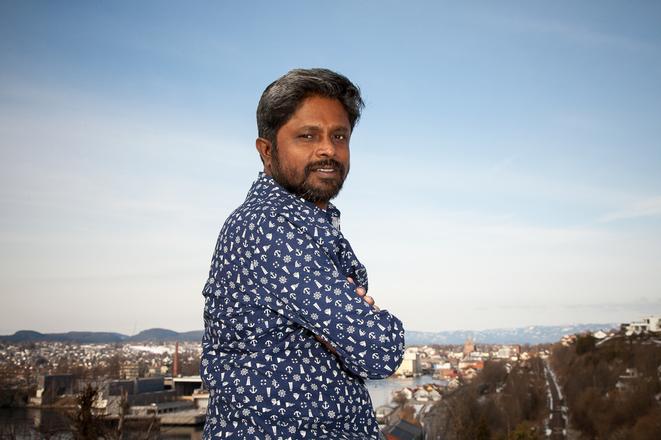Bangladeshi publisher Ahmedur Rashid Chowdhury can only recall part of the brutal attack by Islamic extremists which changed his life and work.
Two young men burst into his Dhaka office in October 2015, brandishing machetes. He does not remember what happened next. He has been told that one of the men tried to shoot him, but he was saved by a colleague who kicked a chair at his would-be killer. The shot missed and Chowdhury, who had suspected he might be targeted by fundamentalists, survived – just.
A publisher of works by secular writers in a state ruled by an increasingly Islamic regime with very little tolerance for anything deemed “anti-Islam”, Chowdhury felt he had been in danger for a long time before the attack
In February of that year, he had witnessed the murder of one of his friends, and other bloggers were killed in the months after as well.
Soon after the attack, an opportunity to live and work in Skien, Norway, arose through the International Cities of Refuge Network (ICORN) - an organisation that provides a place of refuge for writers and artists living and working under threat.

“When I first got the invitation from ICORN after the attack, I didn’t want to go because I knew if I left, I would no longer have a chance to do my work in Bangladesh,” Chowdhury said.
Despite his concerns over his work, activists and other writers convinced him to leave, fearing for his safety.
Speaking at Milan Šimečka Foundation’s multi-genre festival [fjúžn] earlier this month, he explained that the move did change his work, but not in the way he initially feared.
His move to Norway in 2016, he said, allowed him to establish the online version of his Shuddhashar (Free Voice) magazine and share writing freely, and his readership currently spans 56 countries.
Nevertheless, he still feels a pull to his home country.
“I always want to go back,” said Chowdhury, who spoke about ICORN during the festival.


 Ahmedur Rashid Chowdhury (aka Tutul) (source: Arne Olav Lunde Hageberg.)
Ahmedur Rashid Chowdhury (aka Tutul) (source: Arne Olav Lunde Hageberg.)